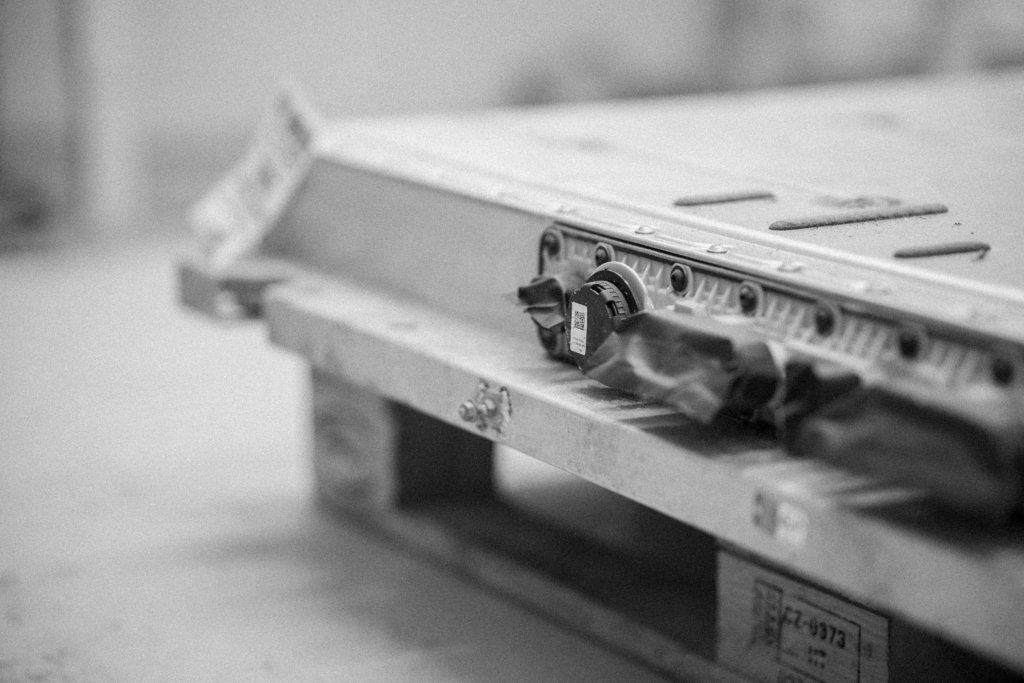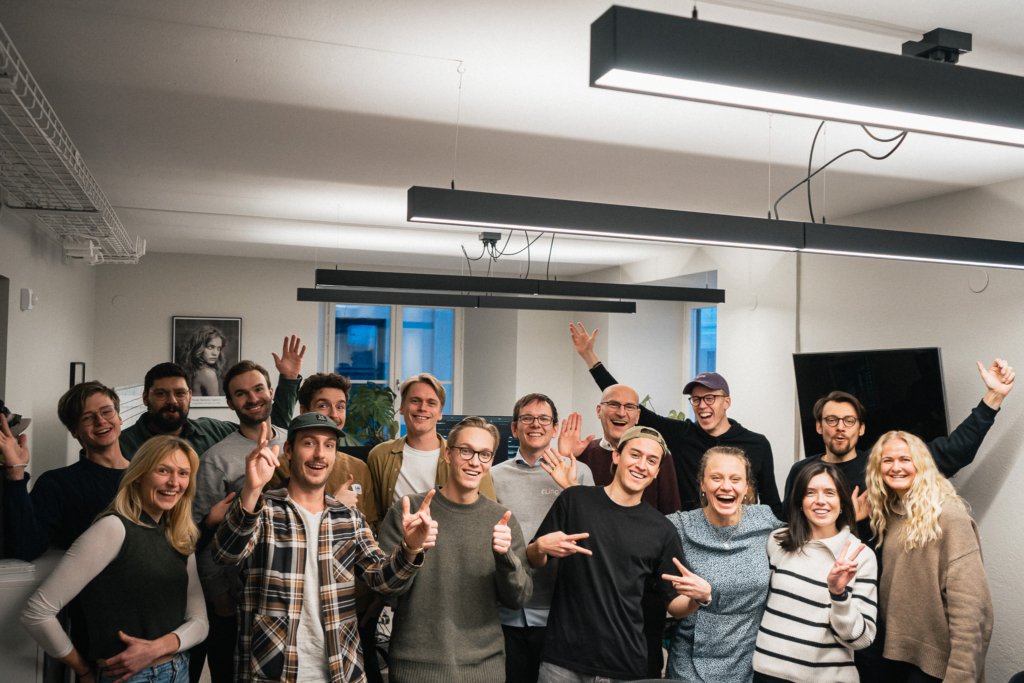The climate tech sector is on an extraordinary ascent, with global investment in energy transition reaching a record $1.8 trillion in 2023, marking a 17% increase from the previous year. This upswing signifies a decisive shift towards clean technology solutions, reflecting a deepening commitment to sustainable innovation globally. The 2024 SET100 startups, pulled from more than 430 applications from over 75 countries, are at the forefront of this charge—a result of their pioneering innovations driving significant advancements in high-impact sectors.
In the fourth of our deep-dive interviews with the SET24 winners, we sat down with Cling Systems’s founder and CEO, William Bergh, on the sidelines of SET Award 2024 Jury Day.

The Swedish startup is making significant strides in the clean energy and climate tech sectors with its cutting-edge battery recycling platform. Their recent accolade in the ‘Clean Energy and Storage’ category for the 2024 SET Award highlights their comprehensive and meticulous approach to battery data management, recycling, and material recovery. In a wide-ranging interview, we discussed the startup’s mission to simplify and expand the battery recycling market, plus Cling Systems’ early success so far and their plans for the future. Cling Systems’s solution is also data-heavy, and Bergh helpfully outlined the three crucial ways that set Cling Systems apart from competitors and other parallel solutions.
The Battery Circularity Revolution
The complexity of battery recycling cannot be understated. Batteries come in various forms and compositions, each with unique requirements for effective recycling. Cling Systems addresses this challenge by developing a comprehensive software library system that meticulously catalogues and manages battery data.
“Comprehensiveness is key,” explains Bergh. “Batteries vary greatly in terms of type, usage, and lifecycle. Our platform’s extensive database captures this diversity, ensuring that each battery’s unique characteristics are accounted for in the recycling process.”
This comprehensive data collection enables Cling Systems to differentiate between recyclable materials and those that cannot be processed. The platform’s ability to track static data (such as shape, size, and configuration), dynamic data (such as degradation over time), and commercial data (such as location, price, and seller) ensures a holistic approach to battery management.

In fact, Cling Systems approach can be summarized across three key areas that differentiate it from other solutions:
- Comprehensive Data Integration: Cling Systems’ platform is structured to handle the static, dynamic, and commercial aspects of battery data. This multi-faceted approach is crucial for accurate tracking and optimizing recycling processes, explains Bergh. By breaking down battery data into these categories, Cling Systems can provide precise insights into each battery’s condition and potential for recycling, which is crucial so that resources and energy aren’t wasted.
- User-Friendly Interface: A crucial aspect for Bergh in developing a technologically complex product, was in ensuring the platform itself was easy to use and accessible. “The platform offers an intuitive user interface that simplifies the complexities of battery recycling,” he explains. “Users can easily order compliant shipping, generate necessary documents, and manage transactions seamlessly.” This ease of use, he explains, is a significant differentiator that makes the recycling process more accessible and efficient for stakeholders.
- Advanced Data Structuring: Finally, Cling Systems has developed an innovative data structure called “Chem to Pack” which categorizes batteries into four levels: pack, module, cell, and chemistry. This detailed breakdown allows for a granular understanding of each battery’s composition, further enhancing the accuracy of the recycling process.
Strategic Partnerships and Collaboration
Collaboration is at the heart of Cling Systems’ strategy. The startup works closely with a diverse range of stakeholders, including automotive manufacturers, battery producers, and recycling facilities. These partnerships are essential for creating a cohesive and efficient battery recycling ecosystem.
“Our long-term vision is to be the go-to platform for battery data management and recycling,” says a Cling Systems representative. “By partnering with OEMs and other stakeholders, we can streamline the entire process, from collection to recycling, and ensure that valuable materials are recovered and reused.”

Cling Systems’ collaborations span various aspects of the industry. For instance, they work with automotive manufacturers to manage end-of-life batteries, ensuring that these are efficiently collected and recycled. They also engage with battery producers to maintain material traceability and comply with regional regulations, preventing the unnecessary export of raw materials.
Global Reach and Future Expansion
Currently, Cling Systems operates in 30 countries, addressing the global demand for efficient battery recycling solutions. However, the company has ambitious plans for further expansion. The US market, in particular, is a key focus area due to its significant demand for battery recycling services.

“We are exploring the possibility of setting up entities in the US to better serve our customers there,” notes Bergh. “Additionally, we are considering expanding into China, given its leadership in battery production and recycling.”
Cling Systems’ platform is continuously evolving. The team is working on integrating dynamic data from Battery Management Systems (BMS) and collaborating with partners to enhance their data extraction capabilities. This ongoing innovation ensures that Cling Systems remains at the forefront of the industry, providing state-of-the-art solutions for battery recycling.
Driving the Clean Energy Sector Forward
Cling Systems is part of a broader movement within the clean energy generation and storage sector, which is rapidly advancing with innovative solutions, and was demonstrated strongly in this year’s crop of SET100 startups. Alongside Cling Systems, startups like H2Site‘s on-site hydrogen production technology and South 8‘s development of safer battery electrolytes are making significant contributions. These advancements highlight the sector’s deepening focus on full value chain sustainability, echoing global decarbonization goals.
SET100 startups like Roofit Solar are integrating renewable energy into construction, TerraWaste is transforming waste management, and Ampere.cloud is advancing energy systems monitoring. These diverse efforts illustrate a sector that is not only diversifying but also scaling up, showing a clear trajectory toward sustainable, widespread clean energy adoption.
Impact and Industry Recognition
Winning the SET Award 2024 has significantly boosted Cling Systems’ market presence and credibility. This recognition underscores the company’s commitment to excellence and its role as a leader in the clean energy sector.

“The award is a testament to our team’s hard work and dedication,” says Bergh. “It also provides us with a valuable platform to connect with other industry leaders and explore new opportunities for collaboration.”
Cling Systems plans to leverage this recognition to enhance their brand and marketing efforts, build trust with stakeholders, and attract potential investors. The award also facilitates networking with other finalists and winners, fostering a collaborative environment that can drive further advancements in the industry.
Conclusion
Cling Systems exemplifies the spirit of battery recycling innovation and dedication required to tackle global environmental challenges. Their comprehensive approach to battery recycling supports sustainability and sets a high industry standard. As they continue to expand and evolve, Cling Systems is positioned to play a pivotal role in shaping a greener, more sustainable future in the clean energy sector.
Follow Cling System’s LinkedIn here, deep dive into SET Tech Festival and SET Award’s 2024 impact here, check out our other SET24 winners here and download the 2024 SET100 here.


